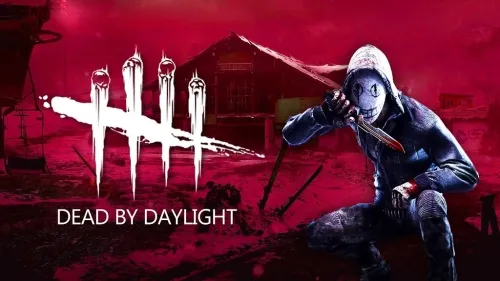The continuous back-and-forth regarding Subnautica 2’s leadership overhaul, subsequent postponement to 2026, and an associated $250 million payout seemingly connected to developer Unknown Worlds’ 2025 revenue benchmarks has only magnified following a harsh statement from publisher Krafton, which acquired the studio in 2021 and has now, in clear terms, asserted that the former studio leaders had to be removed because they were not fulfilling their duties.
Amid all this, a minor yet intriguing storyline has surfaced: the studio’s prior game, which bore no resemblance to Subnautica and was its first release post-Krafton acquisition, turned out to be a complete flop.
Krafton’s latest statement contends that the dismissed leaders “neglected the responsibilities assigned to them,” and specifically calls out co-founder Charlie Cleveland.
“In particular, after the failure of Moonbreaker, KRAFTON requested Charlie to dedicate himself to the creation of Subnautica 2,” the publisher remarked. “However, rather than engaging in game development, he opted to concentrate on a personal film venture.”
Moonbreaker, which you might recall – or perhaps not recall, since it appears nobody truly engaged with it – was fully released in 2024 after an early access period that commenced in September 2022. It’s a turn-based strategy game with PvP that also serves as a digital miniatures collector, allowing players to meticulously paint and customize their figures before deploying them in combat within a world crafted, in part, by fantasy writer Brandon Sanderson.
This was inherently precarious as strategy games have a relatively limited audience with little overlap with Subnautica’s survival game demographic, yet on Steam, Moonbreaker received decent reviews with a 84% positive rating after 1,262 evaluations. Many game developers would strive for that sort of reception. However, Unknown Worlds was following up on Subnautica, a game that boasts 285,739 reviews with a 97% positive score on Steam. It ranks among the top-rated games on the entire platform, which sets a daunting standard.
I never sensed that Unknown Worlds was relying on Moonbreaker to match Subnautica’s level of success, but whatever its hopes were, the game clearly fell short. And yes, upon reviewing its SteamDB history, which indicates a peak player count of merely 882 individuals nearly three years ago, it never truly took off.
Now, let’s delve into these neglected ruins a bit. A review of Moonbreaker’s patch history reveals a classic indicator of trouble: “Changes in Business Model” shortly after its launch. From an outsider’s perspective, it certainly appears that the developers were making significant alterations to monetization in an effort to attract players who evidently were uninterested at the time and ultimately never engaged.
In contrast to the discussions surrounding the reveal of Moonbreaker, this monetization adjustment seems to suggest a rather desperate measure, eliminating one crucial currency from the purchasing process and entirely removing booster boxes. Moonbreaker was priced at $30, but earlier reviews indicate some confusion and resistance regarding its initial free-to-play-like monetization approach. Clearly, it was significant enough to necessitate a developer response.
The ultimate detriment appears to be a tale as old as time: a multiplayer title with a lack of players. The current ruthless market is one factor, but even back in 2022, the potential for a snowballing decline for anything multiplayer was a serious concern. Many recent Steam reviews for Moonbreaker commend the painting sandbox and core gameplay while expressing disappointment that there’s nearly nothing to engage with since there is – at the time of writing, quite literally – no one playing it.
That said, it wasn’t until this increasingly public dispute over Subnautica 2 that the entire extent of Moonbreaker’s decline truly became visible. Krafton has labeled it a failure,
and in a recent update of his own, which termed the leadership alterations a “shock,” Cleveland portrayed Moonbreaker as rather an emotional wound.
“I share all this because I want to express that game creation flows through my veins,” he stated in a message that characterized the leadership shifts as unexpected. “So do iteration and early access. Our titles have flourished due to it, and one of them fell short because we assumed we had greater insight.
“That game meant the most to me, and it didn’t succeed. We labored on it for 5 years prior to our early access, convinced that this time we were seasoned and knowledgeable. Yet, fewer players engaged with that game than even that modest Half-Life mod,” he included, alluding to the Natural Selection mod that established the studio back in 2001. Natural Selection 2, an independent shooter, was released in 2012. It presently has 102 more players than Moonbreaker.
“Although our studio experienced financial prosperity during that time, and despite many fans adoring the game, it truly affected me, and I required time to recover. At times, it feels as if I will never move past that one.”
As Cleveland notes, Moonbreaker’s setback clearly wasn’t severe enough to derail the studio – Subnautica sold a multitude of copies, with its sequel Below Zero performing well too – but it appears to have had a significant effect on some individuals and perhaps dynamics within the studio. Krafton was undoubtedly dismayed when the first title from the studio it had just purchased for $500 million – riding high after two major successes – turned out to be an exceptional failure. Meanwhile, individuals like Cleveland experienced whiplash from the stark differences in success. Now the question is whether Subnautica 2 the game, rather than Subnautica 2 the contentious and unreleased project, can navigate its own challenges.

